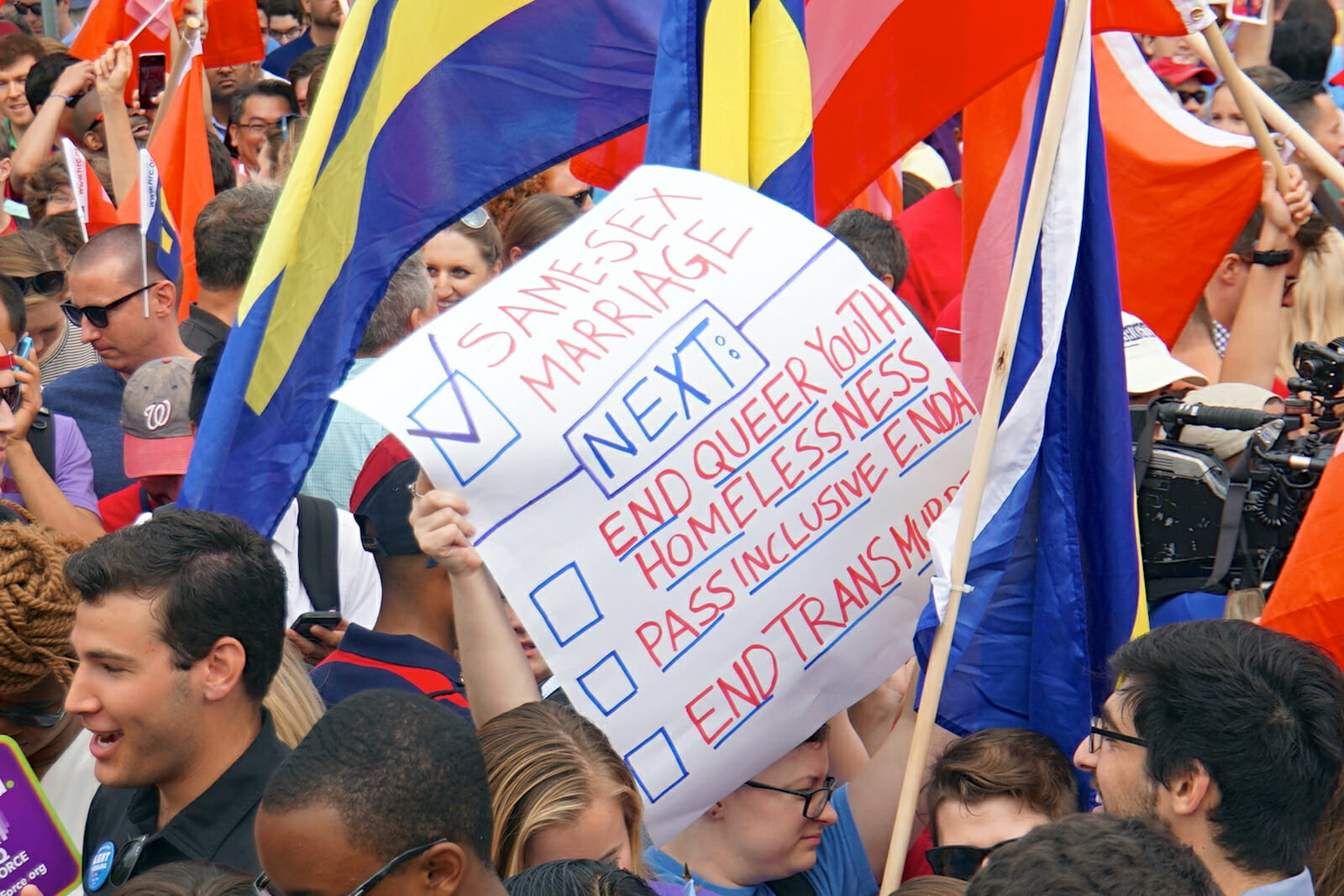
Culture
Marriage Equality: Double-Edged Sword for LGBT Communities
The recent landmark Supreme Court case Obergefell v. Hodges, which legalized same-sex marriage across the United States, was met with great celebration by many Americans, especially in the LGBT communities. The Pew Research Center—a nonpartisan polling organization—reports that a little over half of Americans, including Christians, now support the idea that two people of the same sex should be allowed to marry legally. Not surprisingly, 93 percent of LGBT adults also think so.
The decision therefore was a major victory. Gay and lesbian couples could enjoy the same rights as married heterosexual couples, and the United States Government Accountability Office has identified over 1,000 legal privileges that are contingent on marital status.
Yet, not all people within the LGBT communities saw the focus on marriage or the change in federal law as beneficial. In fact, some have gone so far as to say that marriage equality was a low priority at best and counterproductive at worst. Many transgender individuals, while seeing the case as a step in the right direction, consider other issues, such as employment protection and safety from violence, as more salient goals. Currently, 32 states do not protect transgender people from being fired for their gender identity.
In 2011, the National Transgender Discrimination Survey found that 47 percent of respondents had experienced negative job outcomes because of their gender non-conformity. Over a third of states still do not offer employment protection for sexual orientation either.
Additionally, the amount of violence that transgender and LGB people endure in their communities, schools, and prisons, among other places, has reached a level to which some have called epidemic. Consequently, the time, money, and energy given to achieving marriage equality had the effect of shadowing these other issues. The non-LBGT support also may be coming off of a victory high, leaving majority activism at a low in terms of working on transgender issues.
Obergefell v. Hodges may even have had a negative effect on some people in the LBGT communities, especially those who identify outside of the gender binary, as well as influenced the way heterosexuals see romantic relationships, because it further solidified and legalized a binary mentality that a two-person conjugal relationship is the ideal, even at a time when Americans live in a much wider variety of family arrangements.
More Americans are moving beyond binary labels and thinking about sexuality as fluid. Even with all of her unconventional behavior, Miley Cyrus has at least pushed the notion of pansexuality and non-binary gender identities into the limelight where it can be considered and discussed.
A recent Glamour magazine survey found that 63 percent of women believe that sexuality is too fluid to fit into well-defined categories, such as heterosexual, homosexual, or bisexual. The idea is that sexuality, and therefore interpersonal relations, are dynamic and changeable over a lifetime, not static and fixed.
Given these changing identities and definitions, the promotion of marriage equality encourages gay and lesbian individuals to kowtow to traditional, heterosexual ideas of love and relationships, at the hindrance of more progressive thinking.
Saint Valentine may agree—love is love and should be protected, but not confined.

